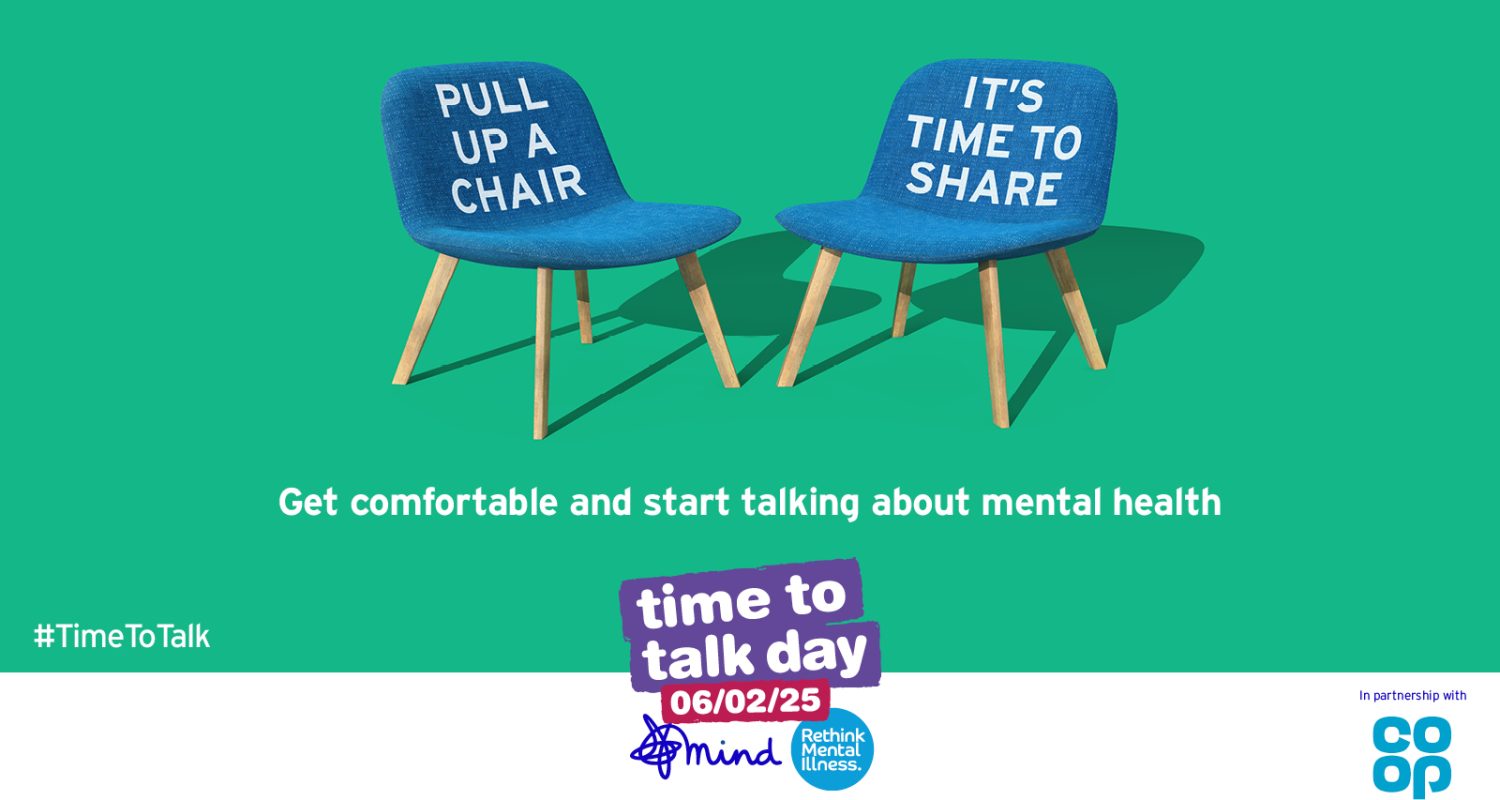Time to Talk Day: Breaking the Silence on Mental Health
Time to Talk Day is a powerful initiative dedicated to opening up conversations about mental health. On 6th February 2025, people across the UK will unite for the nation’s biggest mental health conversation. The aim is to encourage friends, families, communities, and workplaces to come together to talk, listen, and ultimately change lives. This important event is organised by Mind and Rethink Mental Illness, in partnership with Co-op, See Me, SAMH (Scottish Action for Mental Health), Inspire, and Time to Change Wales.
The day is all about breaking the stigma surrounding mental health. For many, discussing mental health can feel daunting, but Time to Talk Day encourages everyone to feel comfortable sharing their thoughts, asking questions, and providing support. Whether it’s hosting an event in your local library, organising a lunch-and-learn session, or simply reaching out to someone via text or social media, there are plenty of ways to get involved. Here are some easy ways you can participate:
- Host a virtual or in-person event: Whether it’s a casual lunch or a community event, organising a gathering is a great way to kick off important discussions.
- Share on social media: Use the hashtag #TimeToTalk and share helpful resources or stories to inspire others to engage in conversation.
- Send a message to a friend: Sometimes, just reaching out and saying, “How are you really doing?” can make a big difference.
For more information, visit the official website here, where you can access helpful tools to join the conversation.
Mental Health in Social Care
Mental health is a critical aspect of care that often requires specialised understanding and attention, especially within the social care sector. It is essential for care workers to have the knowledge and skills to offer appropriate assistance. Recognising the signs of mental health issues and providing the right support can be life-changing for individuals in care, yet the issue remains under-discussed in some environments.
Incorporating mental health awareness into social care settings helps break the stigma and creates an environment where individuals can feel comfortable seeking support. Here are some important pointers to remember:
- Listen and show empathy: Create an open, non-judgmental space for people to talk about their feelings.
- Educate yourself and others: The more we understand mental health, the better equipped we are to support those who need help.
- Encourage professional help when needed: Recognise when an issue may need more than day-to-day support, and guide individuals to appropriate services.
- Recognise the signs of mental health issues: Understanding early signs can lead to quicker interventions and better outcomes for people in your care.
Care workers are often on the front lines, engaging with people who may not be able to voice their struggles or who may feel overwhelmed by their conditions. By integrating mental health awareness into the training and development of care staff, we can create a more supportive, empathetic environment for those affected. It’s not just about identifying symptoms but offering holistic, compassionate care that respects each individual’s dignity.
CareTutor’s Role in Mental Health Awareness
In light of the importance of mental health training, CareTutor plays a crucial role in providing accessible, comprehensive courses for care workers. The Mental Health Awareness eLearning course from CareTutor is designed to enhance understanding, help identify mental health challenges, and equip care staff with the tools to provide the appropriate support to individuals experiencing mental health difficulties. This course aligns with Care Certificate Standard 9, ensuring that care workers meet the essential knowledge requirements for promoting mental health in care settings.
For more information about CareTutor’s Mental Health Awareness course, visit here.
Follow us on Facebook to stay updated with the latest in Social Care!
Get In Touch with us today!
Talk to our team on 020 3129 5667
Email us on: info@caretutor.org

